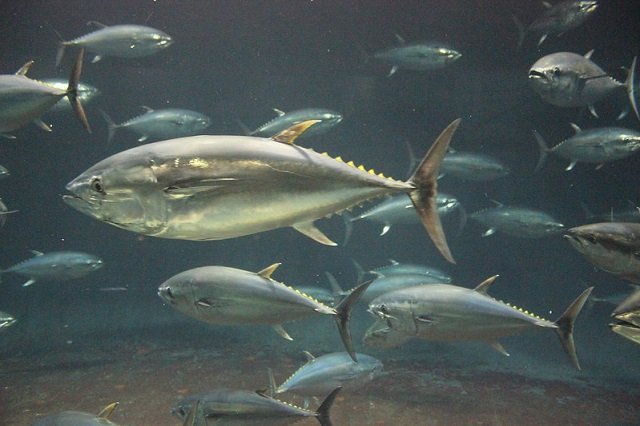Derio, Spain – Most commercially fished species are nowadays highly or overly exploited. Aquaculture can be a key option for mitigating this situation, as it allows demand to be met without compromising sustainability of the natural surroundings. However, the farming of aquatic animal species can also impact the environment and pollute ecosystems.
To ensure the sector’s long-term sustainability, the AZTI technology centre, a member of the BRTA alliance, is coordinating the European LIFE AQUAPEF project, an initiative aiming to develop technology that can calculate, verify and communicate the environmental impact of aquaculture products in the Mediterranean, in accordance with the European Product Environmental Footprint methodology.
The project was launched in 2018 and will culminate late this year. It specifically created a tool that has already been validated for the production of gilt-head bream and European bass by three of the aquaculture companies involved in the project: the Spanish Culmar and the Greek Skironis and Forkys.
Another aim of the project is to enable more efficient communication mechanisms, both between companies in the sector (B2B) and between producers and end-consumers (B2C). Different dissemination systems are therefore being studied in the project, with a view to improving the position of aquaculture products that present better sustainability conditions.
“The EU is developing a methodology to assess the environmental impact of any product or service: the Product Environmental Footprint. AQUAPEF aims to meet the need to facilitate application of this new regulatory framework in the sector by means of a simple tool that aqua-farmers can use to calculate and verify the environmental impact of their products,” says project coordinator Saioa Ramos, a researcher in Efficient and Sustainable Processes at AZTI.
The technology developed will also help identify the impact’s causes and origins; decision-making based on environmental criteria should therefore be easier.
AQUAPEF is financed by the European Commission’s LIFE programme. It counts the participation of seven international partners: AZTI, the HCMR technology centre in Greece, KU Leuven in Belgium, the Spanish software development company INGENET and the aforementioned aquaculture producers Culmar, Forkys and Skironis.
“Our involvement in this initiative is linked to our mission to help develop the product environmental footprint. Initiatives must necessarily be undertaken to quantify, improve and communicate the degree of sustainability of the food and beverages we consume, thereby encouraging more sustainable production and more responsible consumption,” Ramos explains.
Stay Always Informed
Join our communities to instantly receive the most important news, reports, and analysis from the aquaculture industry.
Source: AZTI
Editor at the digital magazine AquaHoy. He holds a degree in Aquaculture Biology from the National University of Santa (UNS) and a Master’s degree in Science and Innovation Management from the Polytechnic University of Valencia, with postgraduate diplomas in Business Innovation and Innovation Management. He possesses extensive experience in the aquaculture and fisheries sector, having led the Fisheries Innovation Unit of the National Program for Innovation in Fisheries and Aquaculture (PNIPA). He has served as a senior consultant in technology watch, an innovation project formulator and advisor, and a lecturer at UNS. He is a member of the Peruvian College of Biologists and was recognized by the World Aquaculture Society (WAS) in 2016 for his contribution to aquaculture.







